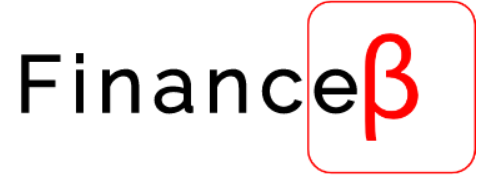A smart contract is a self-executing contract with the terms of the agreement directly written into code. It automatically executes and enforces the terms of the contract when predefined conditions are met. Smart contracts remove the need for intermediaries, such as lawyers or banks, and can significantly reduce transaction costs.
How Does a Smart Contract Work?
Smart contracts are typically written in code and deployed on a blockchain, which is a distributed ledger system.
This means that they are executed on a decentralized network of computers, rather than on a single computer or server.
This makes them more secure and resistant to fraud and tampering.
When a smart contract is deployed, it is assigned a unique address on the blockchain.
This address is used to identify the contract and to track its execution.
The terms of the contract are written into the code of the smart contract, and these terms are executed automatically when the predefined conditions are met.
For example, a smart contract could be used to automate the payment of rent.
The terms of the contract would be written into the code, and the contract would automatically transfer the rent payment to the landlord’s wallet address on the blockchain when the tenant’s rent payment is due.
The Strength of Smart Contracts: Discussing the Benefits of Smart Contracts
Smart contracts provide unmatched security compared to traditional contracts by executing on a decentralized network of computers.
This decentralized nature creates multiple layers of protection, making them highly resistant to fraud and tampering.
Businesses and individuals can have peace of mind knowing that their agreements are safeguarded against malicious activities.
Smart contracts offer transparency by having their code publicly available on the blockchain.
This allows anyone to scrutinize the terms of a contract and witness its execution in real-time.
Stakeholders gain trust and confidence as all parties can verify the fairness and accuracy of the agreement.
Smart contracts eliminate the need for intermediaries, granting users direct access to the inner workings of their contracts.
Smart contracts streamline the execution process, reducing the time and costs associated with traditional contracts.
The elimination of intermediaries, such as lawyers and banks, reduces the administrative burden and speeds up the completion of agreements.
Businesses and individuals can enjoy faster transaction times, leading to increased agility and efficiency in their operations.
Smart contracts are designed to remove bottlenecks, enabling seamless and swift execution of agreements.
Smart contracts revolutionize the way agreements are fulfilled through automation.
Businesses can save valuable time and money by automating the execution process.
Smart contracts self-execute based on predefined conditions, removing the need for manual intervention.
This enhances efficiency and minimizes the risk of human error.
By embracing automation, businesses can operate more effectively, reducing costs and increasing productivity.
Use Cases for Smart Contracts
Financial Transactions
Smart contracts are self-executing contracts with the terms of the agreement directly written into code.
They have the potential to revolutionize financial transactions by automating and securing processes, reducing costs, and increasing transparency.
For example, smart contracts can be used to automate the payment of bills, the transfer of funds, and the issuance of loans.
In the case of bill payments, a smart contract can be set up to automatically pay a bill when it is due.
The smart contract would be connected to the user’s bank account and the biller’s account.
When the bill is due, the smart contract would automatically transfer the funds from the user’s account to the biller’s account.
This would eliminate the need for the user to manually pay the bill, and it would also ensure that the bill is paid on time.
Smart contracts can also be used to automate the transfer of funds.
For example, a smart contract could be set up to automatically transfer a certain amount of money from one account to another on a monthly basis.
This could be used to pay rent, a mortgage, or other regular expenses.
Smart contracts can also be used to automate the issuance of loans.
For example, a smart contract could be set up to automatically issue a loan to a borrower when certain criteria are met.
These criteria could include the borrower’s credit score, income, and debt-to-income ratio.
If the borrower meets the criteria, the smart contract would automatically transfer the loan funds to the borrower’s account.
Smart contracts offer a number of advantages over traditional financial transactions.
They are more secure, efficient, and transparent.
They also have the potential to reduce costs and increase convenience.
Voting
Smart contracts can be used to create secure and transparent voting systems.
They can be used to register voters, track ballots, and count votes.
This would help to eliminate voter fraud and ensure that elections are fair and transparent.
Traditional voting systems are often vulnerable to fraud and manipulation.
Votes can be lost, altered, or miscounted.
This can lead to inaccurate results and a lack of trust in the democratic process.
Smart contracts can be used to create a more secure and transparent voting system by using blockchain technology.
Blockchain is a distributed ledger system that is resistant to fraud and manipulation.
This makes it an ideal platform for voting systems.
Here is how a smart contract-based voting system could work:
- Each voter would be registered on the blockchain using a unique identifier.
- When a voter casts their ballot, their vote would be encrypted and stored on the blockchain.
- The encrypted votes would be tallied by a smart contract.
- The results of the election would be published on the blockchain, where they could be viewed by anyone.
This system would be more secure than traditional voting systems because it would be impossible to alter or delete votes.
It would also be more transparent because anyone could view the results of the election on the blockchain.
This would help to build trust in the democratic process and make it more difficult for fraud to occur.
Supply Chain Management
Smart contracts can be used to track the movement of goods and materials through the supply chain.
This can help to improve efficiency, reduce costs, and increase transparency.
Traditional supply chain management systems are often inefficient and opaque.
It can be difficult to track the movement of goods and materials, and this can lead to delays, errors, and theft.
Smart contracts can be used to create a more efficient and transparent supply chain management system by using blockchain technology.
Blockchain is a distributed ledger system that is resistant to fraud and manipulation.
This makes it an ideal platform for tracking the movement of goods and materials.
Here is how a smart contract-based supply chain management system could work:
- Each item in the supply chain would be assigned a unique identifier.
- The movement of each item would be tracked on the blockchain.
- The data on the blockchain would be used to create a digital twin of the supply chain.
- The digital twin would be used to optimize the supply chain and identify areas where efficiency can be improved.
This system would help to improve efficiency by reducing delays, errors, and theft.
It would also help to increase transparency by providing a clear view of the movement of goods and materials.
This would benefit all stakeholders in the supply chain, including consumers, businesses, and governments.
Healthcare
Smart contracts can be used to manage patient records and to automate the payment of insurance claims.
This can help to improve efficiency, reduce costs, and increase transparency.
Traditional healthcare systems are often inefficient and opaque.
Patient records are often paper-based, which makes them difficult to access and share.
This can lead to delays in care and errors.
Smart contracts can be used to create a more efficient and transparent healthcare system by using blockchain technology.
Blockchain is a distributed ledger system that is resistant to fraud and manipulation.
This makes it an ideal platform for managing patient records and automating the payment process.
Conclusion
In conclusion, smart contracts have the potential to revolutionize many industries by providing a secure, transparent, and efficient way to execute agreements.
They can be used to automate financial transactions, voting, supply chain management, and healthcare.
Smart contracts are still in their early stages of development, but they have the potential to change the way we interact with the world around us.



